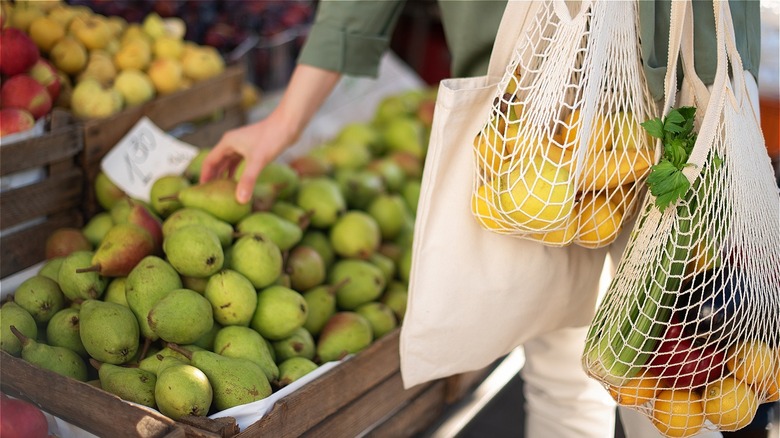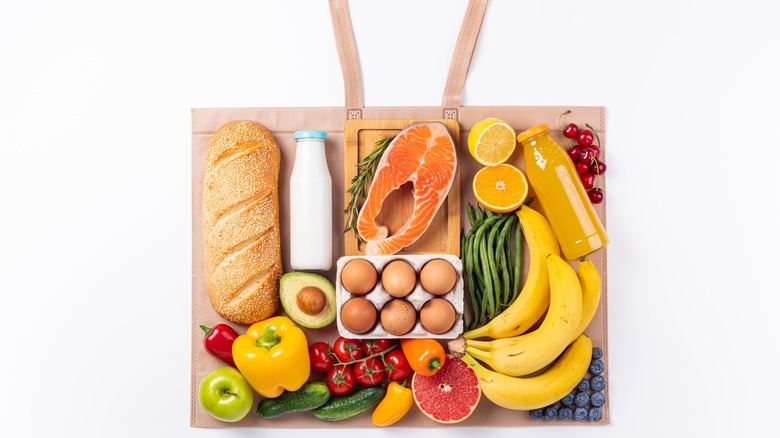It's Long Past Time To Wash Your Reusable Grocery Bags
There is a growing shift toward eliminating waste and the single-use throw-away culture that has developed over the last century. An alarming 30 to 40% of food in the US ends up in the garbage, according to the USDA. That's nearly 133 billion pounds of food annually that could've fed hungry families filling up landfills instead.
Making an effort to reduce, reuse, and recycle in the home, office, school, and community has an environmental impact felt globally, whether you are composting coffee grounds, having a yard sale to find a new home for items you don't need anymore, paying the bills online, or using reusable bags when shopping via EPA. According to Biological Diversity, single-use plastic bags harm our waterways, forests, and wildlife that mistakenly ingests them as food. Since plastic bags take 1,000 years to degrade, they multiply in our landfills.
California became the first state to ban single-use plastic bags in 2014. As of November 2022, eight states, cities across the nation, and over 120 countries have joined California, including Connecticut, Delaware, Hawaii, Maine, New York, Oregon, Vermont, and New Jersey, via National Conference on State Legislation. Many people use reusable grocery bags to transport fruit, vegetables, raw meat, deli meat, and bakery items each time we hit the supermarket, farmer's market, or fruit stand. Yet, a mere 7% wash the eco-friendly bags weekly, per BCIT School of Health Sciences. Since these bags are used daily, how often should we wash them?
Wash after every use
We are amassing a collection of reusable bags. Each time we forget one as we head into the market or a new company wants to promote its business, we add another to the growing collection. The environmentally friendly bags in fun patterns and catchy phrases are used to hold our groceries, housewares, books, and plants and are conveniently filled for the occasional overnight trip. Despite our increased reliance on these tote bags, they are often overlooked when it's time to do the laundry.
While the bags are an invaluable tool for reducing waste, reusing them without properly sanitizing them can harm our health. According to the Cleaning Institute, reusable bags should be cleaned after each use to avoid cross-contamination between raw foods like meat and eggs, which can leave food-borne illnesses like salmonella on the totes. People who mix produce and meat or don't designate bags run the risk of transferring harmful bacteria to other products like produce.
To eliminate the risk of getting sick, wash bags according to the manufacturer's instructions and allow them to dry thoroughly before storing. Insulated or coated bags should be wiped with a disinfectant, especially along the seams. To further limit exposure, designate totes for items by labeling or color coding them- separating produce, meat, cleaning supplies, and seafood. Avoid storing your bags in warm, moist environments like the trunk of your car, which promote mold and bacteria growth. Instead, keep them in your home where air can circulate.

